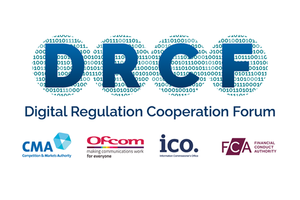UK’s digital watchdogs take a closer look at algorithms as plans set out for year ahead
Every day, we access services that process data using a wide variety of automated systems.

- Digital Regulation Cooperation Forum calls for views on the benefits and risks of how sites and apps use algorithms
- Also seeks input on auditing algorithms, the current landscape and the role of regulators
- Workplan set out for coming year, including protecting children online
This “algorithmic processing” is commonplace and often beneficial, underpinning many of the products and services we use in everyday life. From detecting fraudulent activity in financial services to connecting us with friends online or translating languages at the click of a button, these systems have become a core part of modern society.
However, algorithmic systems, particularly modern Machine Learning (ML) or Artificial Intelligence (AI) approaches, pose significant risks if used without due care. They can introduce or amplify harmful biases that lead to discriminatory decisions or unfair outcomes that reinforce inequalities. They can be used to mislead consumers and distort competition.
Regulators need to work together to articulate the nature and severity of these risks and take measures to mitigate them. That’s how they can help empower the development and deployment of algorithmic processing systems in safe, responsible ways that are pro-innovation and pro-consumer.
The four digital watchdogs – the Competition and Markets Authority, Financial Conduct Authority, Information Commissioner’s Office and Ofcom – today invite views on what more is needed from regulators and where industry should step up.
The four organisations are working together through the Digital Regulation Cooperation Forum (DRCF), which today publishes its annual report, its workplan for the year ahead and two papers on algorithms with a call for comments.
The DRCF workplan for 2022/23 includes projects that will help to tackle some of our biggest digital challenges, including:
-
Protecting children online - improving outcomes for children and parents by ensuring the privacy and online safety protections overseen by the ICO and Ofcom work in unison together.
-
Promoting competition and privacy in online advertising - foster competitive online advertising markets that deliver innovation and economic growth, while respecting consumer and data protection rights, via joint ICO and CMA work.
-
Supporting improvements in algorithmic transparency - support the use of algorithmic processing to promote its benefits and mitigate the risks to people and to competition, by exploring ways of improving algorithmic transparency and auditing.
-
Enabling innovation in the industries we regulate - encourage responsible innovation and explore different models for how we coordinate our work with industry to support innovation.
Gill Whitehead, DRCF Chief Executive, said:
The task ahead is significant - but by working together as regulators and in close co-operation with others, we intend for the DRCF to make an important contribution to the UK’s digital landscape to the benefit of people and businesses online.
Just one of those areas is algorithms. Whether you’re scrolling on social media, flicking through films or deciding on dinner, algorithms are busy but hidden in the background of our digital lives.
That’s good news for a lot of us a lot of the time, but there’s also a problematic side to algorithms. They can be manipulated to cause harm or misused because firms plugging them into websites and apps simply don’t understand them well enough. As regulators, we need to make sure the benefits win out.
Speaking on behalf of the algorithms project team, Stefan Hunt, CMA Chief Data and Technology Insight Officer, said:
Much work has already been done on algorithms by the CMA, FCA, ICO and Ofcom but there is more to do.
We’re asking now, what more is needed, including from us as regulators and also from industry?
Today marks the chance for anyone involved in or with a view on the use of algorithms to have their say, particularly on how we might move to an effective, proportionate, approach to audit to help ensure they are being used safely. The opportunity to offer views is open until Wednesday 8 June 2022.
We invite comments and discussion on the DRCF’s workplan and priorities for the year ahead. These should be submitted to [email protected].
More information can be found on the Digital Regulation Cooperation Forum case page.